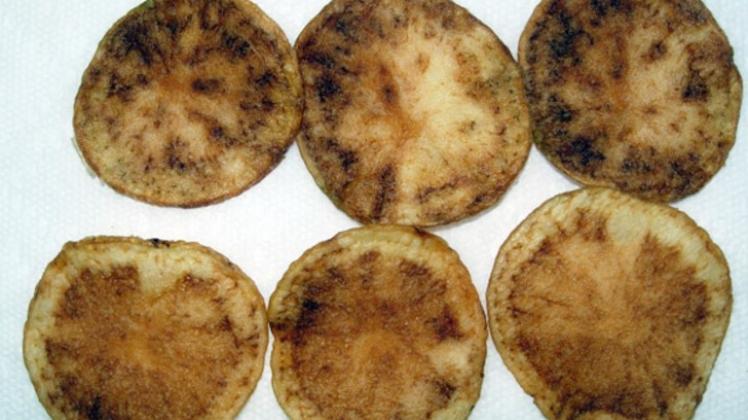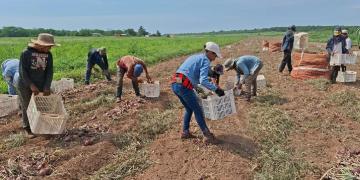EEUU: Researchers unveil innovative technology to treat plant pathogens and pests, including zebra chip disease
Researchers at the U.S. Department of Agriculture’s (USDA) Agricultural Research Service (ARS) announced recently that they have found an innovative way to treat pathogens and pests in potato, citrus trees, and tomato plants without the use of antibi

In collaboration with the University of Florida and AUM LifeTech Inc., researchers found that the molecule FANA ASO (antisense oligonucleotide) when used in a water solution attacks the inner part of the pest’s cells and also reduces the harmful bacteria the insects transmit.
“Bacterial pathogens have only been targeted using antibiotics in fruit crops and livestock animals,” said Wayne Hunter, ARS Research Entomologist at the U. S. Horticultural Research Laboratory in Fort Pierce, FL. “The successful use of FANA to target these pathogens in citrus trees, grapevines, and vegetable crops is a game-changer. It has transformed how we can manage pathogens and pests of plants in the future.”
Bacteria exhibit certain characteristics, such as rapid reproduction or protective coating that make them difficult to manage with antibiotic treatments. FANA has the capacity for stronger management practices by targeting insects, bacteria, and viruses through multiple delivery methods, making it easy to apply directly to the soil and root zone of citrus trees, potted plants, or as a topical spray application onto the leaves of plant foliage.
“Unlike previous issues we encountered with similar technologies, the multiple delivery methods of FANA are all very effective,” said Rodney Cooper, ARS Research Entomologist at the Temperate Tree Fruit and Vegetable Research Unit in Wapato, WA. “This opens the door for further research to extend this to other varieties of fruit and vegetable crops.”
This study is published in the July issue of Frontiers in Agronomy-Pest Management. The researchers report on the FANA suppression of two plant-infecting bacterium Candidatus Liberibacter asiaticus, CLas (in citrus trees), and C. Liberibacter solanacearum, CLso (in potato and tomato).
The researchers say: “CLso causes zebra-chip disease in potato and is transmitted by the potato psyllid, Bactericera cockerelli (Hemiptera: Triozidae). Infected citrus trees or potato plants were treated with aqueous FANA solutions applied as a soil drench, root-infusion, topical spray, tree trunk injection or by absorption into cuttings, detached leaves, and leaf disks. Plants showed significant reduction of each pathogen or symptom development in response to FANA treatments.”
Source: USDA ARSSource: Frontiers in Agronomy-Pest ManagementPhoto: Potato chips made from tubers of affected plants have a severe dark brown streaking defect, hence the name ‘zebra chip’. Courtesy Neil C. Gudmestad and Gary A. Secor, North Dakota State Univ., via Univ. of Nebraska-Lincoln
Fuente: https://www.potatonewstoday.com/2021/07/28/researchers-unveil-innovative-technology-to-treat-plant-pathogens-and-pests-including-zebra-chip-disease/




